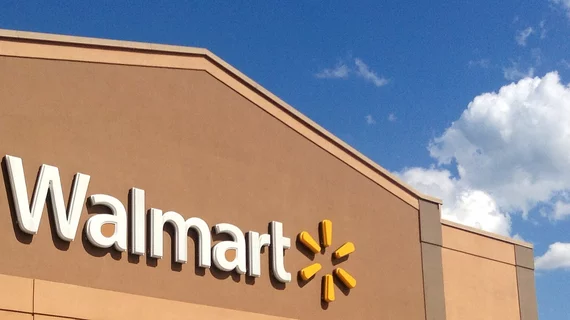Humana exec tapped for Walmart’s health, wellness division
Sean Slovenski, a former executive at Humana has been hired to run Walmart’s healthcare business, Bloomberg reported. He most recently worked for digital health company Healthways. Slovenski has been named as senior vice president of heath and wellness for Walmart, effective August 1.
The appointment comes just months after reports surfaced Walmart may be in talks to acquire health insurance giant Humana. Walmart, like other retail providers including Amazon, has been increasingly looking for ways to expand into the healthcare sector.
Walmart and Humana already work together on drug plans for Medicare beneficiaries, according to Bloomberg, with some plans offering prescriptions for as little as $1 when customers pick up their drugs at Walmart or Sam’s Club.
“Because of its strategic importance, we’ve decided to put more focus on our Health & Wellness business in the near term,” Foran wrote in the memo.
In his new role, Slovenski will report directly to Greg Foran, who runs Walmart’s U.S. business, according to an internal memo dated July 12. He most recently served as president of the population health business at Healthways, which is part of digital health company Sharecare. Walmart has already teamed up with Sharecare for its employees to utilize the health monitoring resources.

